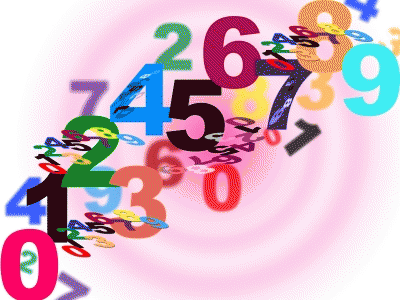The ways things are identified and described are often arbitrary conventions handed down from early influential persons or groups. That's why words don't always have one-to-one correspondences between languages: sometime past, different people in different cultures had their way with how things were to be expressed. A good example is how in some languages nouns are treated as being masculine or feminine, and in some languages the gender of words isn't meaningful or relevant; in each case, someone got their preference established, sexualizing everything from cows to rocks, or not, and they've had their preferences followed ever since.
My concern here is that we have conventions involving numbers that aren't the best way of communicating their quantities or ranges, and there's no good reason they shouldn't be improved upon. So why not drop archaic conventions when communication can be made more simple, intuitive, and comprehensible -- especially for those among us who dislike numbers intensely?
I have two suggestions I believe could help a lot:
The way large geographic expanses are typically described is uninformative and unhelpful. Who has ever mastered the comprehension of a large number of acres, as with the usual reports on forest fires? If you hear that 92,000 acres have been burned, do you have any sense of how vast is the devastation? To report the area in terms of square miles is only a little better: 92,000 acres happens to equal 144 square miles. But even a hundred square miles is difficult to imagine. Why not say, instead of "92,000 acres" or "144 square miles", that the area is 12 miles squared, meaning 12 miles on a side, if the area could fit a perfect square? Isn't that at least a bit more comprehensible?
The same principle can be used to advantage on a smaller scale. Can you visualize how big is ten acres, or even how big is a single acre? Does it help to know that an acre is equal to 43,560 square feet? Wouldn't it be easier to appreciate the size of an acre if it's expressed as approximately 210 feet squared (210 feet on a side), or better yet, 70 yards squared (70 yards on a side)?
For a wildfire, its size might be better expressed as the area of a circle rather than a square. No one needs to know the formula for calculating an encircled area in order to be able to imagine the size of a circle that is 11.25 miles in diameter (which is approximately equal to 100 square miles, or 10 miles squared). A fire of 64,000 acres could thus be described as having burned "the area of a circle eleven and a quarter miles across", or since precision is less important here than comprehension, "a circle over ten miles across" should be acceptable.
To make the proposed conversion from square-miles to miles-squared (and the same for yards, meters, or kilometers) there would need to be an agreement on conventional notations. Normally 10 square miles is expressed as 10 mi2, or 10 mi2, and 100 square yards as 100 yd2 or 100 yd2. I propose using misq for "miles squared" and ydsq for "yards squared". In reference to the diameter of a circle, midi and yddi might be suitable. But I'll leave such secondary issues to the ultimate arbiters of notation.
Here's another problem with the conventional expression of numbers: the assignment of centuries. Who has ever gotten used to the idea that the year 1650 is in the 17th century? It remains a counter-intuitive practice even after it's explained that the years 1 to 100 are in the first century, so except in a centennial year, the identifying century will always be 1 more than the hundreds of years.
But why not express a century instead as "Century X", where X is the number of hundreds of years (reduced to the number of whole hundreds)? The year 2014 would thus be in Century 20 rather than the 21st century. (Note the capital C in "Century 20", as it would be a proper noun.) Using this method, all the years from 1 to 99 would be in Century 0, or "Century Zero" or "Century Ought". The year 1914 would be in Century 19. The "art of the 18th century" (1701-1800) would be expressed as "art of Century 17" (1700-1799).
There are 7 syllables in "the twenty-first century", only 5 in "Century Twenty." The character-count, including spaces, is reduced from 24 to 14 -- small savings that would be multiplied innumerable times in conversation and print. For economy as well as comprehension, isn't it better to be living in Century 20 than in the 21st century?
Long-standing and well-established conventions are difficult to discard -- often especially difficult on a sentimental level. But many enlightened nations dropped their ancient conventions for weights and measures and converted, at great expense, to an international standard: the metric system. Historians and anthropologists have just recently bowed to the objections of non-Christians and changed epochal identifiers from BC to BCE ("before the common or current era") and from AD to CE ("the common or current era"). Those are significant changes of convention, but they've proven to be fairly painless and advantageous.
So 100 misq could be the same area in Century 20 CE as 10,000 mi2 in the 21st century AD. But the former is easier on the brain. I believe our descendents will thank us for the improvements. So why not, let's just change the conventions for the better.
And now for a bonus consideration of a no-less important, although non-numeric legacy imposed upon us from some earlier, less enlightened generation of rule-makers:
When an attorney general from Texas and an attorney general from Florida are walking down the street, dammit, they are not two "attorneys general" walking together. "Attorney General" is a title. If a title includes two words there is an implicit hyphen between them; so two people, each an attorney-general, are attorney-generals. And don't even get me started on the rules about where end-quotes belong next to a period, compared to a colon, or whether and if a comma is needed before the "and" at the end of a series, as in "Beethoven, Mozart, Lennon and McCartney."
Again, why not: let's stop indulging the incoherence of our forebears and make things right wherever we can. Sure, these issues are relatively unimportant in the whole human drama of things. But the critical evaluation of inherited cultural norms can serve to foster an appreciation of progress, and a fading of fondness for conservation. Like a butterfly flapping its wings in China, it could have a measurable effect on world climate, war, and economic collapse.






